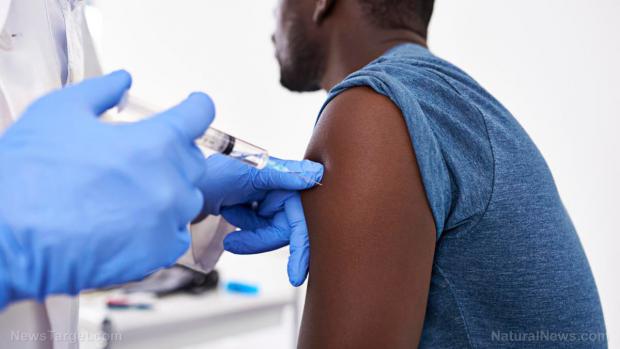
Breaking News
 Widow of killed fire chief not satisfied with Secret Service suspensions...
Widow of killed fire chief not satisfied with Secret Service suspensions...
 Gunman leaves multiple injured at church after shooting cop at Kentucky's Blue Grass Airport
Gunman leaves multiple injured at church after shooting cop at Kentucky's Blue Grass Airport
 One year later: White House highlight Trump's legacy on anniversary of assassination attempt
One year later: White House highlight Trump's legacy on anniversary of assassination attempt
 Arizona homeowner fined by petty HOA for act of kindness during extreme heat
Arizona homeowner fined by petty HOA for act of kindness during extreme heat
Top Tech News
Magic mushrooms may hold the secret to longevity: Psilocybin extends lifespan by 57%...
 Unitree G1 vs Boston Dynamics Atlas vs Optimus Gen 2 Robot– Who Wins?
Unitree G1 vs Boston Dynamics Atlas vs Optimus Gen 2 Robot– Who Wins?
 LFP Battery Fire Safety: What You NEED to Know
LFP Battery Fire Safety: What You NEED to Know
 Final Summer Solar Panel Test: Bifacial Optimization. Save Money w/ These Results!
Final Summer Solar Panel Test: Bifacial Optimization. Save Money w/ These Results!
 MEDICAL MIRACLE IN JAPAN: Paralyzed Man Stands Again After Revolutionary Stem Cell Treatment!
MEDICAL MIRACLE IN JAPAN: Paralyzed Man Stands Again After Revolutionary Stem Cell Treatment!
 Insulator Becomes Conducting Semiconductor And Could Make Superelastic Silicone Solar Panels
Insulator Becomes Conducting Semiconductor And Could Make Superelastic Silicone Solar Panels
 Slate Truck's Under $20,000 Price Tag Just Became A Political Casualty
Slate Truck's Under $20,000 Price Tag Just Became A Political Casualty
 Wisdom Teeth Contain Unique Stem Cell That Can Form Cartilage, Neurons, and Heart Tissue
Wisdom Teeth Contain Unique Stem Cell That Can Form Cartilage, Neurons, and Heart Tissue
 Hay fever breakthrough: 'Molecular shield' blocks allergy trigger at the site
Hay fever breakthrough: 'Molecular shield' blocks allergy trigger at the site
FDA updates mRNA vaccine warnings, confirming "extremely high" myocarditis risk in young m

The updated labels now explicitly warn of an "extremely high" risk of myocarditis – a potentially life-altering heart condition – in young men.
The decision announced July 1 follows mounting evidence of persistent cardiac damage in males aged 12 to 24, contradicting earlier federal assurances that such cases were "rare and mild." This move marks a pivotal moment in the national debate over vaccine transparency and the long-term consequences of rushed pandemic policies.
The FDA's label update is the latest step by officials working under Health Secretary Robert F. Kennedy Jr. to restrict or undercut the use of vaccines. Under the leadership of Commissioner Marty Makary, the regulator restricted annual COVID-19 shots to seniors and other Americans at higher risk from the virus. (Related: Japanese study: Even mild myocarditis from COVID-19 vaccines can cause FATAL ARRHYTHMIAS.)
The updated warnings stem from alarming cardiac MRI findings in young men who developed myocarditis after vaccination. Studies funded by the agency reveal that 60 percent of affected patients still exhibited signs of myocardial injury – in particular late gadolinium enhancement (LGE) – five months after their initial diagnosis. LGE indicates scarring or inflammation that could lead to permanent heart damage, raising concerns about long-term cardiovascular health in this demographic.
The revised incidence rate of 27 myocarditis cases per million young men is now officially acknowledged, though critics argue this figure is likely underreported due to passive surveillance systems and historical reluctance to link adverse events to vaccination.
Myocarditis (inflammation of the heart muscle) and pericarditis (inflammation of the tissue that surrounds the heart) are driven by an immune system on high alert, set off by inflammatory proteins, research found in 2023. Myocarditis causes fatigue and shortness of breath, while pericarditis leads to chest pain.
Kennedy is pushing for stricter limitations on booster recommendations
The FDA's label update is unlikely to quell the controversy. Vaccine skeptics, including Kennedy himself, are pushing for stricter limitations on booster recommendations. Meanwhile, mainstream public health figures warn that overemphasizing rare side effects could deter vaccination altogether.

 AI Getting Better at Medical Diagnosis
AI Getting Better at Medical Diagnosis

